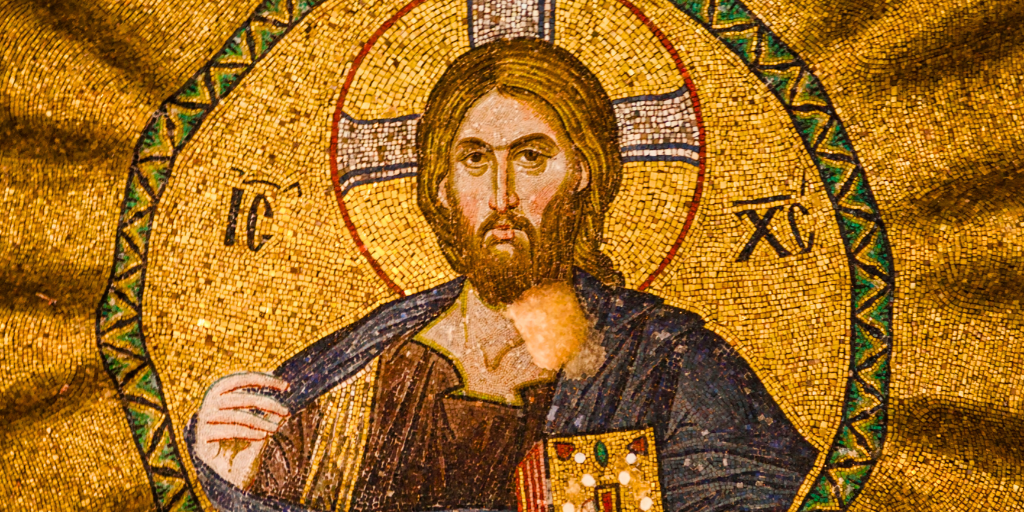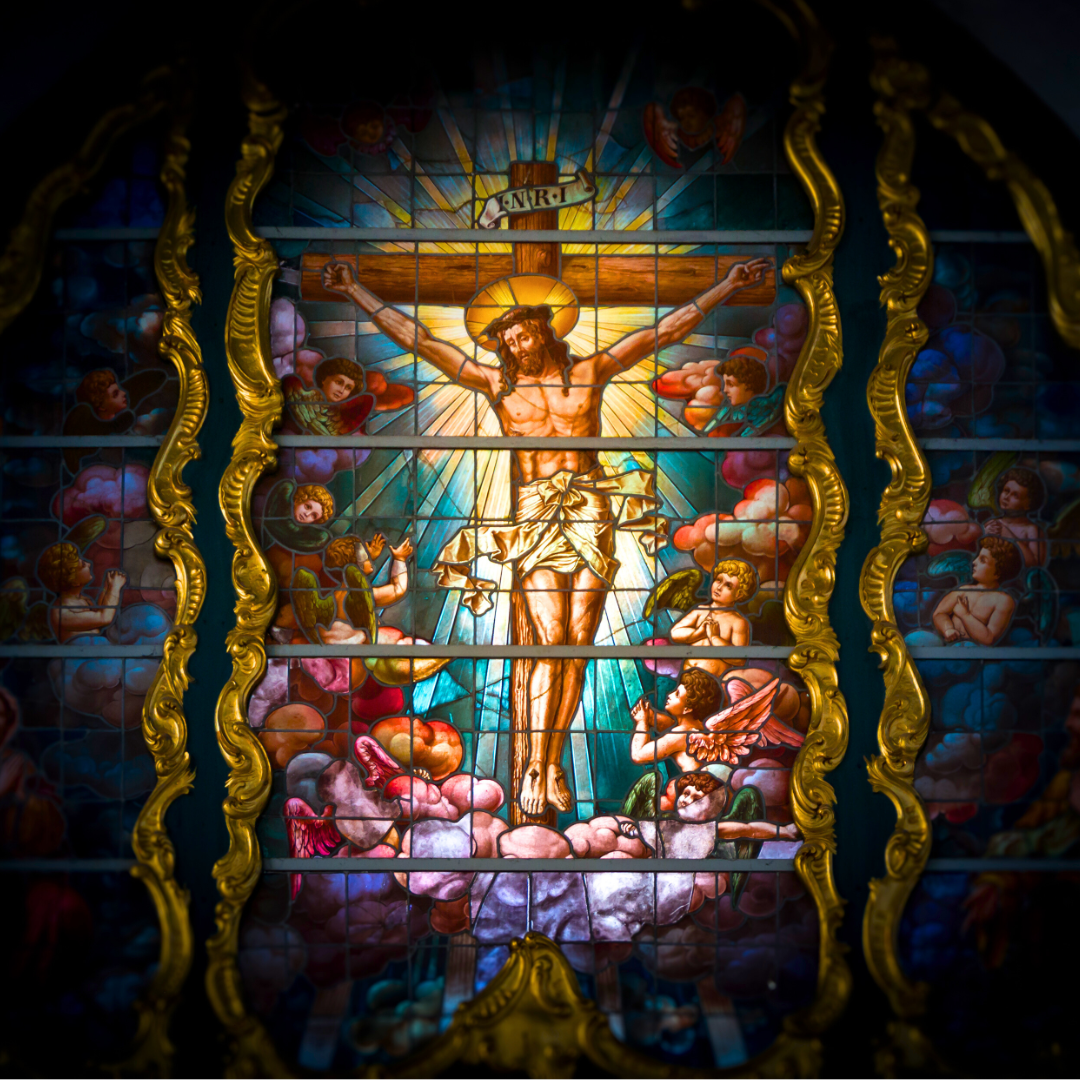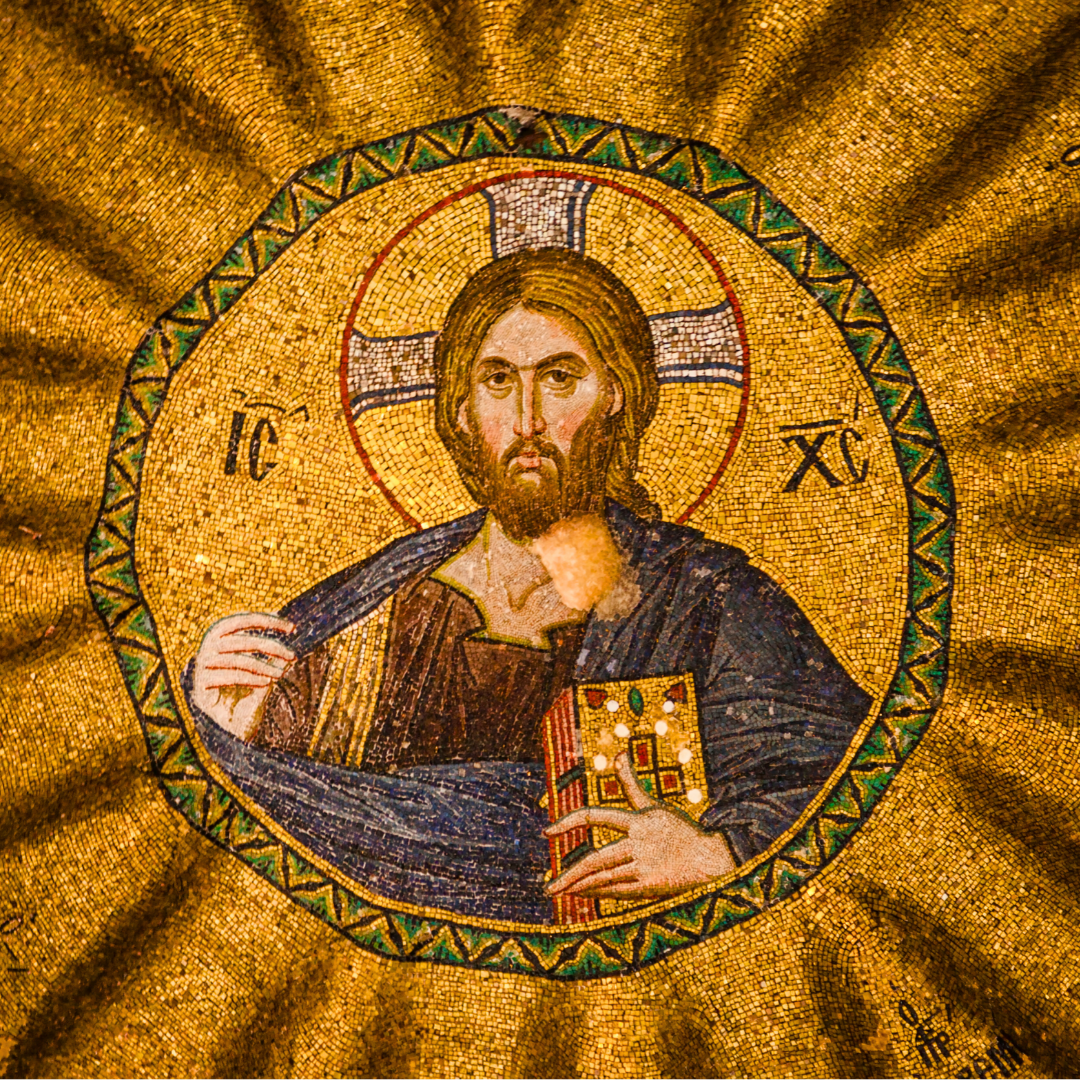
Jane Korvemaker discusses what we can learn from St. Paul's letters about Jesus' understanding of how He carried His own divinity.
Those of us who have been granted faith read the New Testament with eyes that believe and understand that Jesus was fully divine and fully human. We don’t really doubt that Jesus and the Father are one. It was not always this way.
The New Testament
The first century disciples, had a different situation: like those in Nazareth who didn’t see what was so wonderful about this guy whom they knew their whole lives (Mark 6:1-6), the people knew Jesus had preached and did miracles but at the end of it all, He died a common criminal for rising above His station, so to speak. There was nothing about Him that cried, "Divinity!"
The challenge the writers of the New Testament faced was that Jesus was so human that it was ridiculous anyone would propose anything different. Their mission was to illustrate, now that they had received the Holy Spirit and were granted the gift of eyes of faith, how Jesus was actually divine while also human, for our salvation.
Paul’s letters, which are the earliest written testaments to this fledgling Christianity, convey the core of our beliefs about who Christ is and the salvation he brought about. Philippians 2:6-8 poetically describes what our Church has believed since before it was written down:
Christ Jesus,
Who, though he was in the form of God,
did not regard equality with God something to be grasped.
Rather, he emptied himself,
taking the form of a slave,
coming in human likeness;
and found human in appearance,
he humbled himself,
becoming obedient to death, even death on a cross.

Divinity Emptied, Humanity Full, but Limited
Recently an analogy came to me. It’s not perfect (analogies never are); perhaps you remember the movie The Bourne Identity. Without giving away the whole story, the main character struggles throughout the movie with not knowing his identity. And yet he has very clear capabilities. He remarks,
I can tell you the license plate numbers of all six cars outside. I can tell that our waitress is left-handed ... and the guy sitting up at the counter weighs two hundred fifteen pounds and knows how to handle himself. I know the best place to look for a gun is the cab of the gray truck outside. And at this altitude, I can run flat-out for a half mile before my hands start shaking. Now why would I know that? How can I know that and not know who I am?
In a crazy way, this limited knowledge reflects what the Son of God chose in "taking the form of a slave." For Jesus, however, His earthly capabilities were a reflection of who He knew Himself to be: beloved by the Father. His source of life was His Father.
“He emptied himself … taking the form of a slave.” In His preexistence, He freely chose to become a slave to the human condition. This means He had the same limitations we all experience:
Can we see the past and future of everyone we meet? No!
Do we only pretend to suffer so that others know how human we are? Weird. And no.
Do we know when we’re going to die and exactly how it’ll happen? No, this is not a human capability.
His intimacy with the Father through the Spirit is how He could sense what He needed to do in each new situation, even if His humanity limited His vision. He was the most human human. By prayer, He knew to preach the Kingdom of God and repentance; He had human faith in his Father; He showed us what the most human expression of that faith could bring about. On the cross, He died in human hope of the Father’s faithfulness.
If He’s Not Human Like Us, Then …
In faith, the New Testament writers were able to see how Jesus carried His divinity by becoming empty of its power. In his letter to the Smyrnaeans, Ignatius of Lyons put it this way, perhaps with a little sass:
He suffered all these things for our sakes, that we might be saved. And He suffered truly, … not, as certain unbelievers maintain, that He only seemed to suffer, as they themselves only seem to be Christians.
… But if these things were done by our Lord only in appearance, then am I also only in appearance bound. And why have I also surrendered myself to death, to fire, to the sword, to the wild beasts?

Bottom line: if the Son of God was not fully and truly human, then humanity is not saved. Only what is assumed is saved.
Knowing this, I’m glad that Jesus wasn’t omniscient; my salvation depends on it.

Copyright 2023 Jane Korvemaker
Images: Canva
About the Author

Jane Korvemaker
Jane Korvemaker loves food, family, wine, and God (perhaps not in that order). She holds a Certificate in Culinary Arts, which pairs perfectly with her Bachelor in Theology. A former Coordinator of Youth Ministry, she writes from the beautiful and cold province of Saskatchewan, Canada. She works from home and takes care of her three very hard-working children. Jane regularly blogs at AJK2.ca.


.png?width=1806&height=731&name=CatholicMom_hcfm_logo1_pos_871c_2728c%20(002).png)
Comments